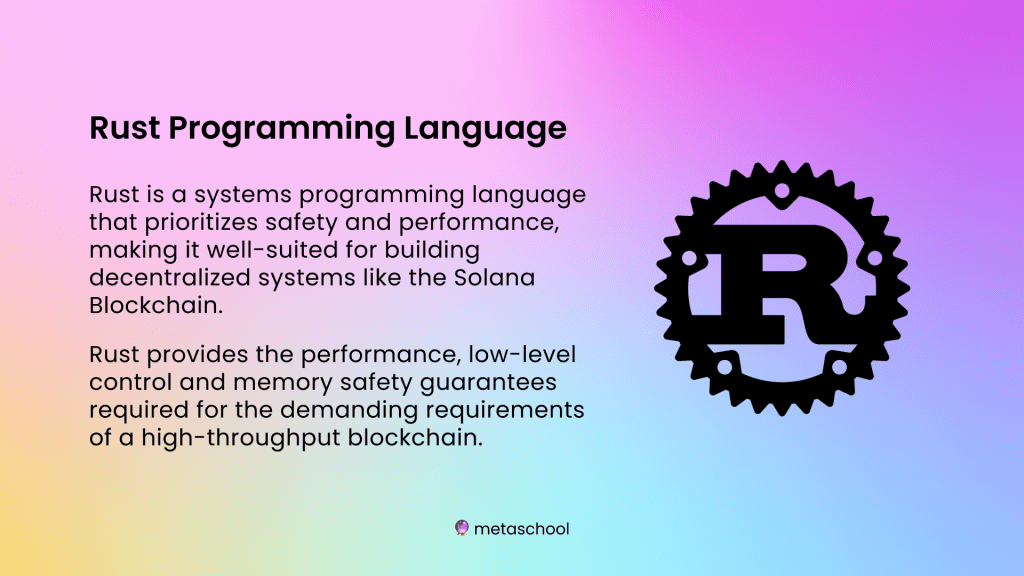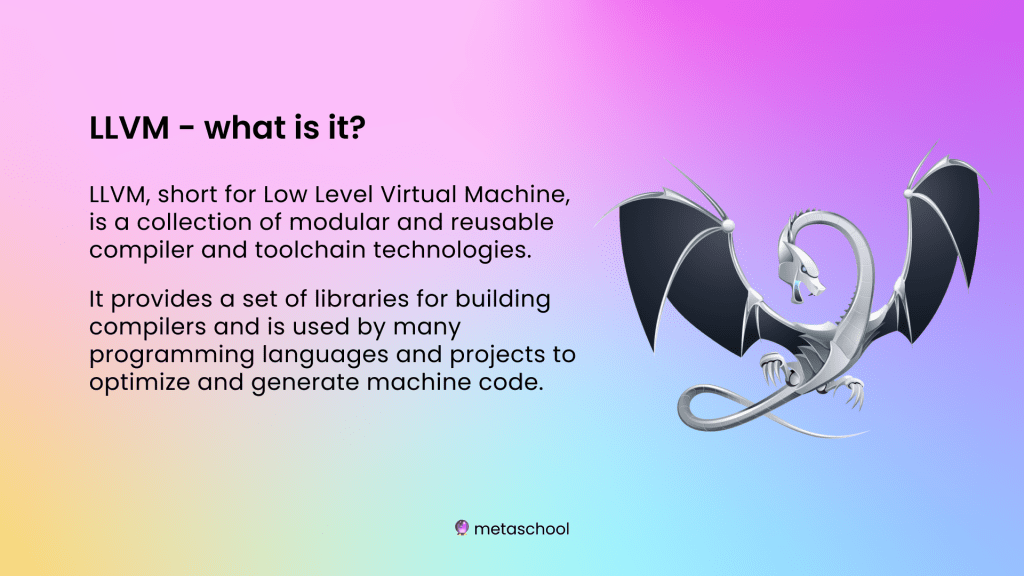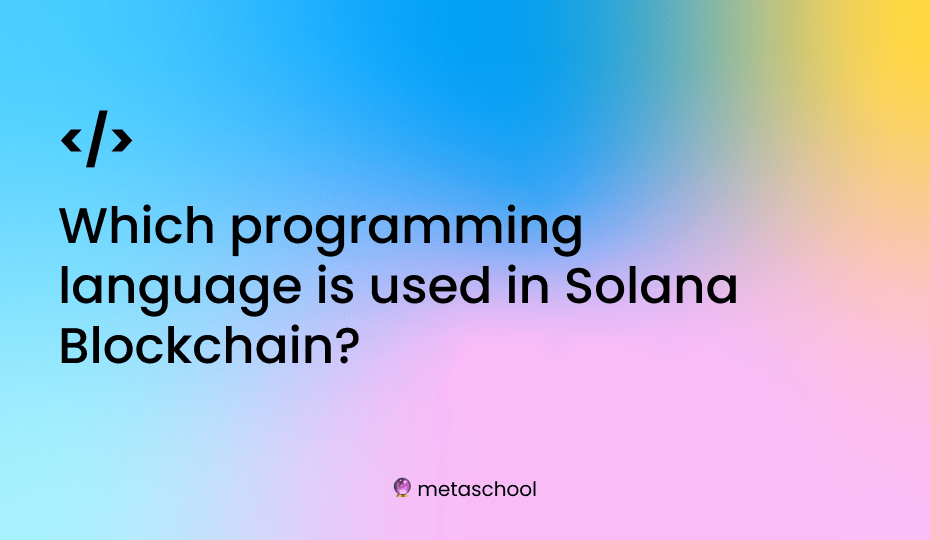Table of Contents
The most common Solana Blockchain programming language is Rust.
What is Rust?
Rust is a systems programming language that is designed to be safe, concurrent, and fast. It is particularly well-suited for building blockchain technology because it provides the performance and low-level control required for the demanding requirements of a high-throughput blockchain, while also providing the memory safety guarantees that are essential for preventing security vulnerabilities.
Additionally, the Solana team has built a set of libraries and tools specifically for building blockchain systems in Rust, making it a natural choice for development on the Solana Blockchain.

Important features of Rust
1. Memory safety
Rust has a strong focus on preventing common programming errors, such as null or dangling pointer references, that can lead to security vulnerabilities. This is particularly important in blockchain development, where a single vulnerability can have serious consequences.
2. Concurrency
Rust’s built-in support for concurrency, through the use of lightweight “threads” called “tokio” and “actix” , allows developers to easily write parallel and asynchronous code. This is important in blockchain development, where high performance is essential.
3. Low-level control
Rust provides a high degree of control over system resources, such as memory and CPU usage, which is necessary for building high-performance systems like blockchain.
4. Strong type system
Rust has a robust type system that helps to prevent type errors and ensures that code is safe and predictable.
5. Community and tooling
The language has a large and active community, which means that developers can find help and resources when they need it, and also a large set of libraries and tools for building blockchain systems in Rust are available.
6. Familiarity and ease of use
It is a modern and intuitive language, most similar to C++. It has a simple and consistent syntax, which makes it easy for developers to learn and use.
👩🏻💻 Beginner web3 project 👉🏼 How to create your own Solana token
Can programming languages other than Rust be used on Solana?
It is possible to use other languages on the Solana Blockchain by using LLVM, short for Low Level Virtual Machine, which is a collection of modular and reusable compiler and toolchain technologies. It provides a set of libraries for building compilers, and it can be used to convert code written in other languages into machine code that can run on Solana.
For example, you can use LLVM to convert code written in C++ or C to machine code that can run on Solana. However, it is important to note that this approach is not as simple as using a pre-existing library or API. It requires a good understanding of LLVM and the language you are trying to use, and it may be quite complex to implement.

Additionally, it’s not guaranteed that the performance and security of the code generated by LLVM will be optimal for the Solana Blockchain, since it’s not been specifically designed for it. Since the Solana team built the blockchain in Rust, which has been proven to be safe, concurrent and fast, it’s the recommended language for developing on it.
How to use other programming languages on Solana blockchain
While Solana is primarily written in Rust, it is possible to use other languages to program on the blockchain as well. There are several ways to accomplish this:
1. APIs
Solana provides APIs that allow developers to interact with the Solana from other languages. These APIs can be used to create, read, and update transactions on the blockchain, as well as to query the state of the blockchain. Developers can use these APIs to write smart contracts, decentralized applications, and other blockchain-based systems in their preferred language.
2. Wrappers and libraries
There are third-party libraries and wrappers available for different languages that allow developers to interact with the Solana Blockchain. These libraries act as a bridge between the language and the blockchain, providing a convenient way to interact with the blockchain and perform common tasks such as creating transactions and querying the blockchain state.
3. Interpreters and transpilers
It’s also possible to use an interpreter or transpiler to run code written in another language on the Solana Blockchain. Interpreters and transpilers can convert code written in a high-level language into a form that can be executed on Solana.
As a parting note, it’s worth mentioning again that the most common Solana Blockchain programming language is Rust and other languages may not be as well supported by the Solana community.
